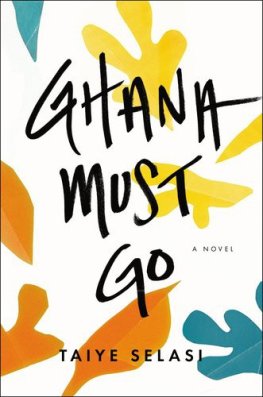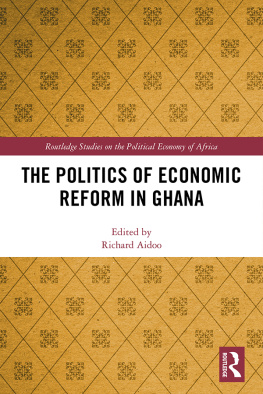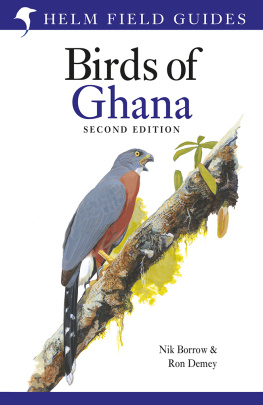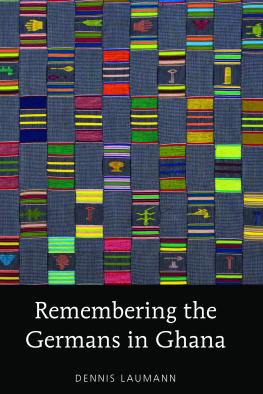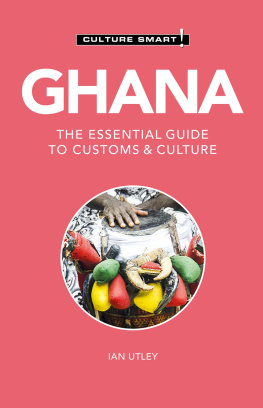Cocoa and Kinship in Ghana
First published in 1983
by Kegan Paul International Ltd
This edition first published In 2009 by Routledge
2 park Square , Milton Park , Abingdon , Oxon , OX14 4RN
Simultaneously published in the USA and Canada by Routledge
270 Madison Avenue , New York , NY 10016
Routledge is an imprint of the Taylor & Francis Group, an informa business
International African Institute 1983
Transferred to Digital printing 2009
All rights reserved. No part of this book may be reprinted or reproduced or utilised in any form or by any electronic, mechanical, or other means, now known or hereafter invented, including photocopying and recording, or in any information storage or retrieval system, without permission in writing from the publ ishers.
British Library Cataloguing in Publication Data
A catalogue record for this book is available from the British Library
ISBN10: 0-7103-0041-7 (pbk)
ISBN13: 978-0-7103-0041-6 (pbk)
Publishers Note
The publisher has gone to great lengths to ensure the quality of this reprint but points out that some imperfections in the original copies may be apparent.
The publisher has made every effort to contact original copyright holders and would welcome correspondence from those they have been unable to trace.
Contents
Tables
Preface
This book is largely based on research that was carried out during the years 19713 and could not have been completed without the cooperation of many farmers who willingly gave their time. I am par ticularly indebted to Nana Asare Bediako III and Nana Kofi Kusi who made me welcome in their respective settlements, and to Mr Alex Mensah, a cocoa farmer himself, who assisted with the collection of data at Dominase.
I am grateful also for the permission given by the Institute of Statistical, Social and Economic Research, University of Ghana, Legon, to use material gathered while I was working there and for the time to write. Part of the field-work was funded by a grant administered by the Cocoa Research Co-ordinating Committee at Legon and to them also I owe many thanks.
Since starting this work I have benefited from the constant support and encouragement of my colleagues Susan Mabey and Dr C. Oppong, and I owe much to their comments on the manuscript and to those of the late Professor Fortes, Dr E.N. Goody, Professor Morton-Williams and Professor Fiawoo. I am also grateful to Valerie Dudley, who completed much of the final proof-reading. This book is, however, my own, and the sole responsibility for the end product must be mine.
Introduction
This work has two major objectives. One is to analyse the significance of customary property relations among the Akan in determining the distribution of cocoa farm ownership between persons of different age, sex and status and for the management and organisation of cocoa farms. The other is to document contemporary changes in kinship and associated changes in the economic environment.
The main theme is the management and organisation of cocoa farms among the Akan; this arose out of a more general concern with declining cocoa production in Ghana and the long-term care of cocoa trees which usually have a life-span of at least forty years. Occupational and spatial mobility (Boaten, 1974), the use of hired labour (Broatch, 1956; Uchendu, 1969), decreasing real returns to production (Leston, 1974), and the incidence of pests and diseases (Hunter, 1961; Hill, 1963; Beckett, 1972; Collingwood, 1972) had all been reported as contributing to the production decline, while questions surrounding the inheritance of farm properties among the matrilineal Akan had also been pinpointed as important variables disturbing the long-term care of farms (Okali and Kotey, 1971). This latter finding was particularly interesting in view of the rate at which cocoa production had expanded throughout the forest belt of Ghana and among the Akan. It contradicted the findings of Polly Hill (Hill, 1963) who, in detailing the expansion of cocoa in the Eastern Region, demonstrated that corporate land-owning acted as a spur to expansionary enterprise. It was these conflicting findings and the lack of studies considering cocoa production from this view-point (see Okali and Addy, 1974) that suggested the present work, which concentrates on variables usually categorised as non-economic as distinct from viewing cocoa production as the result of the factor mix determined by the relative market prices of the inputs and outputs involved. Analyses from an economic viewpoint are covered elsewhere (see Kotey, Okali and Rourke, 1974; and Okali and Addy, 1974).
Underlying much of the literature on the widespread agricultural changes in West Africa, including the transfer from subsistence to cash cropping, is the assumption that certain customary principles are eroded in the process. Attention has focused on the disinte-gration of descent groups as a whole, especially their corporate functions, and on the emeraence of the elementary family as the key kinship group with respect to economic co-operation, especially in societies characterised by matrilineal descent and inheritance. A number of writers have suggested that this is true among cocoa producers in Ghana (Busia, 1951; Woodman, 1966; Benneh, 1970; Adomako-Sarfoh, 1971). Even Hill (1963), whose main interest was in the formation of landed estates and who emphasised the persistence of customary principles of economic co-operation among matrilineal and patrilineal communities, reports that the forces of capitalist enterprise were represented by the individual farmer and his wives and children (Hill, 1963: 16). Nevertheless, as early as 1948, Fortes (1948) considered that if the lineage system held its own for another fifty years, possibly all cocoa farms would be lineage-owned in Ashanti. Clearly the introduction of cash cropping had led to changes in customary property relations in rural areas but considerably more information was needed to highlight their significance. The present work therefore seeks to investigate this link between the organisation of cash crop production and customary principles of social organisation among the matrilineal Akan.
Although cocoa has been the major source of employment, production and foreign exchange earnings in Ghana for decades, few writers have focused on the farmers themselves instead of the crop, and most studies have considered only one particular aspect of production. Hence Shepherd (1936), Nowell (1938), Watson (1948), Jibowu (1956) and Quaidoo (1956) considered the problem of the availability of cash for farming, farmer indebtedness and the pledg-ing of farms. Killick (1966), Appiah (1970), Rourke (1971) and Addo (1972) have all concentrated on the hired labour force Involved in cocoa production. Few have looked in detail at other sources of labour on farms. The distribution of returns from farms has not been considered although there has been some reference to the trans-fer of property between owners (Benneh, 1970; Adomako-Sarfoh, 1971; Okali and Kotey, 1971). Interest in mobile farmers has led to investigations of land purchase arrangements and demonstrated the significance of the role played by migrating farmers in the develop-ment of the industry (Hill, 1963; Adomako-Sarfoh, 1965; Benneh, 1970; Kotey, 1972). One of the earliest and most comprehensive studies of cocoa production was that of Beckett (1947) which was concerned with detailing costs and returns to farmers working within their own chiefdom or on their own stool land. (Stool land was land vested in the office of the chief, available to any citizen, if uncultivated.) A similar study has been completed for a migrant cocoa farming community (Okali, 1975).


